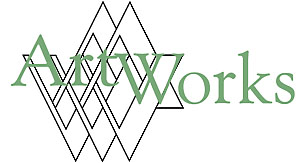
 |
Summer 2003 |
|
An interview with Denise Giardina ADA: Becoming Accessible From the Director A convergence of printmakers and potters Monoprints of Barbara Marsh Wilson Interview with Mark Wolfe |
New organization supports dance educationBy Lisa Griffin Oxley In the spirit of West Virginia Music Educators, West Virginia Arts Education Association and West Virginia Thespians, there is a now an organization designed to bring together educators in dance: West Virginia Dance Education Organization (WVDEO). Formation of this new group is an exciting and timely development for the future of dance in the state. Dance in West Virginia is a thriving art form in many settings: Private studios, professional and semi-professional companies, freelance artists and, most recently, public schools. WVDEO’s goal is to connect these various entities and unite dance education in West Virginia. The group’s first meeting was held during the West Virginia Contemporary Dance Festival in Buckhannon, and the next took place on May 3 at the West Virginia Dance Festival in Charleston. WVDEO will work as an affiliate of the National Dance Education Organization (NDEO), which was founded in 1998 as a professional service association for dance centered in the arts. Before deciding to affiliate with NDEO, WVDEO’s founders explored many organizations. They chose NDEO because of its dedication to supporting quality dance education in all forms. It is working to create a nationwide network of dance educators, studio teachers and dance artists, along with higher education and federal and state arts agencies. Membership is open to community dance enthusiasts, artists and teachers in other arts disciplines and arts support organizations. According to NDEO executive director Jane Bonbright, “As a discipline, we must unite to form a collective voice for dance arts education in the United States. NDEO is establishing state affiliates for exactly this reason.” The idea of unity throughout the dance world corresponds to WVDEO’s essential goal of connecting those in dance across West Virginia. The organization will form a much-needed central database in order to share knowledge and resources. One partnership crucial to the future of dance education is that between public school dance programs and private dance studios. Dance education should be designed in such a way that each complements the other. This idea has proven successful in several areas of the state. For example, dance students may be trained in dance technique at the studio while studying the history and choreographic principles at school. In addition, schools can call upon professional dance artists for workshops in various dance disciplines, performances or artist-in-residence programs. By working together, the public and private sectors can create the ideal environment for students to study the art of dance. Some immediate goals of WVDEO include creating a directory of dance professionals and a website, and members will begin receiving a newsletter in the near future. The group is also developing an annual retreat, complete with workshops, performances and classes. Various levels of membership in NDEO and WVDEO are available, including student and institutional memberships. Benefits include quarterly newsletters, a subscription to the Journal of Dance Education, optional health and liability insurance, eligibility for awards and the opportunity to earn Continuing Education Units for certification. The 2003 NDEO Conference, Culture, Language, and Dance, will take place October 15 to 19 at the University of New Mexico in Albuquerque. If you have questions or are interested in becoming a member, please contact WVDEO President Lisa Griffin Oxley at: leastones @ yahoo.com , or call her at 304-256-3984. Call for artistsThis fall, a special exhibit of fine art and fine craft works by artists with disabilities is being planned to coincide with the annual PATHS conference. This non-juried show is open to West Virginia artists of all ages. A small entry fee is required; grants may be available to cover the cost of the entry fee. Dates: September 17-19, 2003 Co-sponsored by the West Virginia Assistive Technology System and the West Virginia Department of Arts, Culture and History. |